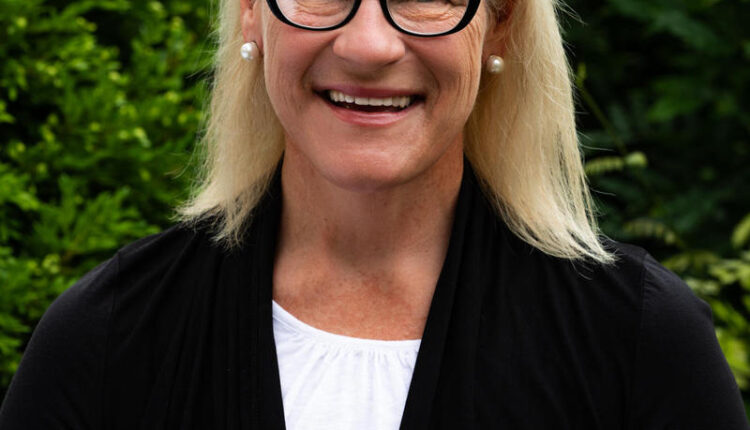MDHHS Emails Reveal SafeHouse Executive Director Repeatedly Lied to Michigan Officials
by P.D. Lesko
On July 31, 2021, The Ann Arbor Independent published an article that revealed SafeHouse Center was unsafe, unsanitary and that client-facing staff at the non-profit worked in an atmosphere of what they called “racist toxicity.” A dozen survivors, staff and interns came forward to share their stories. Their allegations were corroborated by photographs and videos of a facility where client bedrooms and bathrooms were filthy, air ducts were unsanitary, and the lack of a functioning security camera system made the shelter unsafe. Public records obtained from the Michigan Department of Health and Human Services (MDHHS) by The Ann Arbor Independent revealed that between Aug. 2, 2021 and Sept. 29, 2021 SafeHouse Center’s Executive Director Barbara Niess-May sent a series of emails to staffers at the MDHHS in which she subtly misled and outright lied to the state officials. In her initial emails sent at the beginning of Aug. 2021, the SafeHouse Center Executive Director tries to convince MDHHS officials that the documented problems at SafeHouse Center are “all untrue,” and the alleged mismanagement of the shelter is “misinformation.”
One Michigan MDHHS official with whom Niess-May exchanged emails was Karen Porter, the Director of Quality Assurance for the Michigan Domestic Violence Prevention & Treatment Board. The other MDHHS staffer whom Niess-May emailed was Debi Cain, Executive Director of the Michigan Domestic and Sexual Violence Prevention and Treatment Board. Cain is Porter’s supervisor. Porter was directly responsible for the stellar March 2021 quality assurance report documenting allegedly excellent conditions at SafeHouse Center, including treatment of staff, the condition of the facility and the treatment of survivors.
At the same time Niess-May was emailing her assurances and “updates” to State officials, survivors were snapping and sharing photos and videos of moldy bathroom showers, moldy air vents, client rooms with holes in the walls and ceilings, a filthy kitchen’s empty food cupboards, a refrigerator filled with mostly condiments, a walk-in refrigerator filled with rotting, out-of-date food, and a freezer filled with out-of-date meat–complete with frozen meat blood running the length of the freezer door.

![]()

Resident shower. ![]()

![]()
“I can say without question it is all false.”
Shortly after the July 31 article was published, on Aug. 2, Niess-May writes to Porter that, “I can say without question it [the July 31, 2021 A2Indy article] is all false.”
In that email, Niess-May tells Porter: “We have had a very unfortunate incident come up at SafeHouse Center. Please see attached a blog post and our response. I can say without question it is all false. Today I am spending quite a bit of time on the situation, and also, happy to talk about it tonight or tomorrow if that would be helpful. We are working with Matt Friedman with Friedman Tanner [sic]. I feel awful and just completely sick about this. It is devastating–and it continues to unfold.”

Porter, who had conducted a remote review of the facility only five months earlier, replies on Aug. 3: “I’m sorry, Barbara. I can only imagine how challenging and devasting [sic] it must be right now. I will reach out soon to talk further. Thank you for reaching out. Take care. ~ Karen.”
On Aug. 4, 2021 SafeHouse Center Board President Tara Mahoney said in an email to The Ann Arbor Independent, “We [the Board members] are committed to strong governance and to overseeing delivery of the organization’s mission. I believe there is strong oversight of our Executive Director and SafeHouse generally. SafeHouse Center has a committed, dedicated and passionate board that takes its responsibilities seriously.” Public records provided by the MDHHS show that in April 2021, at Niess-May’s request, Karen Porter attended a meeting of the SafeHouse Center Board of Directors to “report” on the Michigan Domestic Violence Prevention & Treatment Board’s glowing review of the facility.
The MDHHS SafeHouse Staff Interview List shows that during the March 2021 review, Karen Porter interviewed one SafeHouse Center staffer: Barbara Niess-May.
“I have also been accepted into a leadership fellowship with the NEW Center.”

After the July 31 article was published, Niess-May and the SafeHouse Board hired Tanner Friedman, a Farmington Hills PR firm.
On Sept. 3, Niess-May tells Karen Porter in an email, “I have also been accepted into a leadership fellowship with the NEW Center called Champions for Change, where in BIPOC leaders get support and White allied leaders learn more about implementing change.”
The NEW Center’s webpage includes the names and photos of all Fellows in the organization’s 2020-2021 cohort. Niess-May is not listed. In her email to Porter Niess-May writes, “Leadership is in active dialogue and engagement with current shelter residents about their concerns.”
Among the “concerns” shelter residents shared with The Ann Arbor Independent were personal safety, lack of cleanliness of the facility and a lack of fresh, healthy food for themselves and their children. For a follow-up article published on Sept. 15, 2021, SafeHouse residents, including residents who had been evicted from SafeHouse for speaking to the newspaper, provided photographic and video evidence to corroborate their allegations.
After The A2Indy’s Sept. 15, 2021 article, on Sept. 23 Niess-May emailed an “update” to Porter and Cain: “Our next steps in light of the complaints are to use an independent review to investigate the complaints. I believe that we will learn from and use the feedback to improve our internal systems. In the meantime, we are also heading into an all staff planned process, facilitated by ChangeWorks (in particular Faye Askew-King and Chuck Warpehoski) that will help us build conditions for safety and trust, and further our vision for values for diversity, equity and inclusion. We start all staff dialogues for this on October 13. I have been working with Chuck and Faye since early August. I am also looking for additional ways to support survivors and SafeHouse Center staff who serve them.”
Former Ward 5 Ann Arbor City Council member Chuck Warpehoski, a white man, holds an undergraduate degree in sociology from Grinnell College in Iowa. He has no educational credential in DEI training. At the DEI consulting firm Warpehoski founded in 2019, the title he has given himself is “Chief Change Strategist.” Faye Askew-King holds a degree in social work and is an adjunct faculty member at Eastern Michigan University. Prior to her retirement, Askew-King headed SOS Community Services, a non-profit focused on temporary and transitional housing for parents and their children. In a bio posted to the webpage of Warpehoski’s company, Askew-King says of herself, “A facilitator at heart, Faye has a gift for creating group processes that both cultivate safety for everyone to participate and challenge participants to grow.”
Askew-King’s RateMyProfessor student course reviews paint a different picture of her gifts: “Condescending. Contradicts herself”; “She’s dismissive and doesn’t help all that much”; “Contradicts herself.” Only 34 percent of her students said they would take another class from her. Of the 13 student reviews of Askew-King’s “group process” in the college classroom, nine of them rated her skills “awful” or just “average.” Public records show Askew-King is not licensed by the State of Michigan to practice social work.
In the same Sept. 23 email to Porter and Cain, Niess-May assures the two MDHHS officials that, “We [SafeHouse Center] have a cleaning service and a deep cleaning service that attend to the cleaning needs of the building.”
Shelter residents, however, provided a photo of the SafeHouse Center “chore chart” dated Aug. 24, 2021. The A2Indy published it on Sept. 15, 2021. That chart (below), prepared by SafeHouse staff, shows that the eight domestic and sexual abuse survivors housed in the shelter on that date were forced to clean the shelter side of the building. With the threat of eviction held over their heads by SafeHouse staff (who were empowered to evict those survivors who did not clean), the shelter residents (primarily Black women) were forced to do the facility’s laundry, including linens from residents’ bedrooms, mop floors, clean refrigerators, highchairs and microwaves, as well as clean hallways, the living room, bathrooms and stairs.
Even as traumatized, low-income, and minority women were coerced into cleaning the shelter during a pandemic, Niess-May on Sept. 23 tells MDHHS officials in an email, “I will continue to meet with staff, survivors and other community members to better understand how we can improve everyone’s experience at SafeHouse Center, and how we can better embody our diversity, equity and inclusion (DEI) values and grow our anti-racism work.”
Porter (copying Cain) replies on Sept. 23: “Thank you, Barbara, for bringing this to our attention and keeping us informed. We appreciate you and the SafeHouse Center Board of Directors being proactive. We support SafeHouse Center taking steps to ensure that the organization’s practices and policies provide the essential foundation to support excellence in services and administration. We acknowledge your deep commitment to victims/survivors and support steps being taken in response to the allegations.”
“As the Executive Director, I condemn the recent false and misleading information being circulated.”
On Sept. 22, Barbara Niess-May sent a public statement composed by the SafeHouse Center Board defending her, as well as a first person statement defending herself to Porter and Cain. In the statements shared with MDHHS officials, Niess-May once again tells the MDHHS officials that evidence substantiating the unsanitary conditions and mismanagement of SafeHouse Center was “false.”

Washtenaw County Administrator Greg Dill sits on the Board of SafeHouse. Dill signed the Board’s Sept. public statement in which the members expressed their unqualified confidence in Niess-May. That triggered a public, written rebuke signed by a dozen local elected officials. The officials, all women, pointed out the Board’s statement of confidence in Niess-May made prior to an independent investigation, was inappropriate. Two of the signers of the public rebuke were members of the Washtenaw County Board of Commissioners.
“In order for a truly independent investigation to take place, the director of SafeHouse should be placed on administrative leave. Moreover, any discussion of confidence in the Executive Director should be left out of a press release until the investigation is concluded,” the elected officials wrote.
Niess-May, in her statement released Sept. 24, began with this: “As the Executive Director, I condemn the recent false and misleading information being circulated in our community about SafeHouse Center’s practices and staff.” Niess-May went on to write that the “condition of the building is held to a high standard. First, we have oversight from the Michigan Department of Health and Human Services.”
The Michigan Domestic Violence Prevention & Treatment Board evaluates domestic violence shelters in Michigan, but the evaluations, according to MDHHS officials, do not constitute any form of state oversight.
According to MDHHS officials, the Division of Victim Services quality assurance report should not have been used by Niess-May to refute public allegations concerning the facility, its lax security and inadequate services. When questioned via email about Niess-May’s repeated use of the MDHHS Division of Victim Services quality assurance report in efforts to discredit allegations and to exonerate herself, a spokesman said, “The MDHHS Division of Victim Services is strongly committed to ensuring that victims of domestic violence and sexual assault have access to safe places to live….It should be noted that the Division of Victim Services is not an oversight or regulatory body.”
In a Sept. 29 email, Niess-May reverses course with Porter and Cain: “Last week I reached out to you about SafeHouse Center. With further reflection, I realize that my letter to you and the request for organizational support set a defensive tone and should have waited. I apologize for the tone and creating a sense of urgency.”
“We will continue to work with survivors to locate safe shelter options even if it’s not with SafeHouse Center.”
On Aug. 24, 2021 Niess-May emailed Porter to tell the Michigan official that SafeHouse had lost so many client-facing staff that victims would be turned away: “SafeHouse Center is in a situation where we need to limit our own capacity to receive survivors into shelter. We do not take this decision lightly, and it is because we are at a critical low level in staffing throughout the agency.” Niess-May goes on to tell Porter: “The purpose of this communication is to share with you what our circumstances are and to share what we are asking of community partners: We will continue to work with survivors to locate safe shelter options even if it’s not with SafeHouse Center.”
Beginning in Aug. 2021, multiple survivors and domestic violence advocates who contacted SafeHouse Center for help say they were told the shelter was “full.” None of the victims reported receiving help from SafeHouse staff to locate safe shelter.
Frances Branham, 62 and disabled, along with her six-year-old grandson went to the door of SafeHouse to seek shelter in early-Oct. Her abusive husband had locked her out of their home. She and her grandson had no food, shelter and only the clothing on their backs.
“I went to the SafeHouse door and used the phone there to talk to someone inside the shelter,” said Branham. “They asked if I was fleeing an abusive relationship, and I said I was. Then the woman said they had no room for us. I had to spend the last of my money on a room at the Victory Inn.”
Niess-May and the SafeHouse Center Board of Directors kept the need for reduced occupancy a secret from the public. Despite the fact that SafeHouse had been turning away victims, and not providing services for almost six weeks, on Oct. 11 SafeHouse Center held a scheduled fundraiser.
While the Aug. 24 chore chart shows there were eight residents in the SafeHouse Center shelter with 50 beds. In an Aug. 30 email to Karen Porter, Barbara Niess-May writes, “Hi Karen! I am so embarrassed that the formatting on this was so bizarre. Information was not left off. I am happy to put the information and the answers to your questions in a pdf memo if that would be helpful. Currently, we have 30 residents and children in shelter.”
Survivor Julie Goble left SafeHouse on Sept. 1, 2021. Goble says that when she was asked to leave, there were three women and two children housed in SafeHouse. Goble was made homeless by SafeHouse staff who directed her to the Delonis Center, which had no space.
Between mid-June and the end of Sept. 2021, SafeHouse Center lost eight of its 13 client-facing staff, according to a Nov. 17, 2021 letter from SafeHouse Center’s Interim Executive Director Kim Montgomery to the Washtenaw County Board of Commissioners.
In her Sept. 23 email, Niess-May asks Porter for a favor. “Also, I have a request. This has been extraordinarily difficult for the staff serving survivors. If you have a moment to draft a note of support, gratitude, acknowledgment of the work they are doing, I would be grateful. During the really stressful time, they continue to focus on supporting and advocating for survivors. I think hearing from community partners gratitude and recognition for their work is really important right now.”
On Oct. 6, the SafeHouse Center Board of Directors placed Niess-May on paid administrative leave. She continues to collect her salary and benefits, which, according to the non-profit’s most recent 990 income tax return, cost the non-profit north of $10,000 per month. That same evening, the Washtenaw County Board of Commissioners met and voted to allocate $75,000 in emergency funding for victims of sexual and domestic violence whom Niess-May and her staff had made homeless, beginning in Aug. 2021.
At its Nov. 18, 2021 meeting, the Washtenaw County Board of Commissioners were told in a presentation by Deputy County Administrator Diane Heidt that SafeHouse Center is in need of repairs and deferred maintenance estimated to cost $330,000. Commissioners repeatedly thanked Heidt for “delivering the message” about the situation at SafeHouse Center.
While Niess-May repeatedly said the County, as the owner of the building that houses SafeHouse Center, was responsible for the serious disrepair of the client side of the shelter, Heidt told Commissioners that, according to a contract between the County and SafeHouse, SafeHouse Center’s Executive Director was responsible for alerting County officials to needed upkeep and maintenance.
Among the improvements proposed is a security fence and a working security camera system “upgrade” to monitor the client side of the facility. Washtenaw County Sheriff Jerry Clayton and U-M Director of Safety Services, Eddie Washington, Jr., are both members of the SafeHouse Center Board of Directors. It was under the watch of Clayton and Washington that SafeHouse Center’s shelter side was left vulnerable to security breaches thanks to a non-functioning camera placed above the door of the building used by the women and children in hiding from their abusers.
“Safe House Center continues to provide services at normal levels”
On Oct. 6, County Commissioners allocated $75,000 for services and housing for individuals made homeless and turned away by SafeHouse Center. On Nov. 18, Commissioners were told the County has spent $31,075 to provide services, including housing, to a dozen domestic violence victims turned away or evicted by SafeHouse.
According to a letter from Interim Executive Director Kim Montgomery included in the Nov. presentation to the Washtenaw County Board of Commissioners, between the beginning of Oct. 2021, when Niess-May was put on leave, and the beginning of Nov. 2021, SafeHouse has housed just six victims and six children. Montgomery characterized this as “services at normal levels.” The shelter has 50 beds, and salaries paid to staff amounted to $1.8 million in 2019, according to an audit provided to MDHHS officials in Mar. 2021.

During the Nov. 18 meeting, Susan E. Shink, Chair of the Board of Commissioners, was skeptical of Montgomery’s summation. Shink said, “I will say that reading Ms. Montgomery’s letter where it says that SafeHouse has been operating normally since August, then why has the County been left providing services for survivors? I will ask why has the County been helping people since August? I’m concerned about a number of things regarding SafeHouse. I have heard through the grapevine that my political career might be effected by taking a stand on it.”
Likewise, County Commissioner Ricky Jefferson was unconvinced by Montgomery’s assurances. He said, “I look at it as a lot of work to be put into the building, which is because of neglect over the years. I’m interested in whether or not this is something the County will continue with SafeHouse. We need a partner that is willing to be evaluated and monitored by the County. We have to make sure this is something we want to be connected to. [Is SafeHouse] going to be a community partner we can trust with our residents.”
Ann Arbor County Commissioner Jason Morgan wondered aloud whether County residents can rely on SafeHouse. “It seems like the County is doing a lot of the heavy lifting here, which I fully support, but are we going to see ourselves back to a place where SafeHouse can fulfill its function and we can rely on SafeHouse to care for survivors?” asked Morgan. He continued, “I’m also concerned that we are putting all these resources into the facility, but I’m concerned this is something SafeHouse should have been doing.”
In Oct. 2021, an outside investigator hired by the SafeHouse Center Board of Directors began an investigation into the allegations published by The Ann Arbor Independent. That investigation is expected to be concluded at the end of this month. The Ann Arbor Independent offered to share the public records obtained from the MDHHS with Commissioner Shink, members of the SafeHouse Board of Directors and the independent investigator. To date, there has been no response.





Comments are closed, but trackbacks and pingbacks are open.